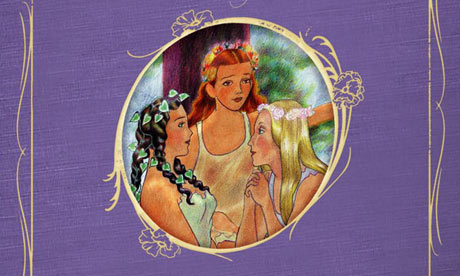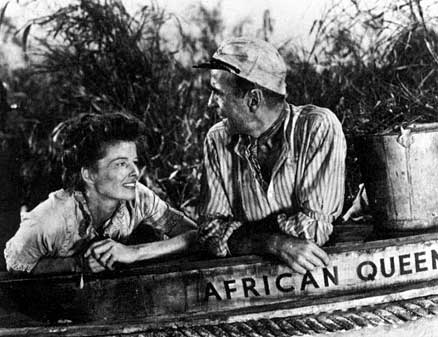
Imagine my joy that a thread containing a great many generalizations about romance and soap opera offers analysis of only two categories of texts: literary fiction by men (mostly Proust and Updike) and Marvel comics (albeit ones that are, loosely, “open to female perspectives.”)
Sigh.
I think this happened because people, in trying not to denigrate soaps and romances, were focusing on the elements they have in common with things that really aren’t romance or soaps. But in the process, it feels a little like the actual things that makes those genres feel the way they do, the things that make them emotionally appealing, are lost. Romantic situations do not a soap opera make — if I really want Robert Scorpio, Mr. Darcy will just not be good enough! Certainly romantic (i.e., dating, marriage, non-casual sex) and domestic situations are commonplace in the romance genre and the soap opera genre. But just having romantic or domestic situations at the center of a narrative, to me, is not enough to place it in those genres, and certainly not to actively gender the work female in the way those genres generally are.
That’s because what makes romance and soap opera “feminine” isn’t simply that they’re about romantic situations, or even that they’re about domestic situations in the broader sense. What makes them “feminine” is that they’re preoccupied with emotional motivations, more than just emotional experiences, and in that respect they mimic typical and stereotypical intrafemale conversation, including but not limited to gossip. (It’s circular, of course, because familiarity with these genres has shaped and colored and affected and even defined intra-female conversation, but nobody is claiming gender is not a social construct…)
In American soap operas, especially since the 1960s, a character’s motivations are generally multifaceted and involve a lot of duplicity, suspiciousness, victimization, competition, manipulation, machination, and whatever emotional anything can be thrown in to make human interaction complex, confusing, and melodramatic. (I don’t have the sense telenovelas are much different.) But the narratives are structured not to make the viewer care, but to give the viewer room to analyze and sort out those complex and dramatic motivations — what makes this character feel and act this way, why is she plotting, are there secrets in her past, is he telling the truth? The long duration of the narrative isn’t about building emotional relationships with characters — that’s an epiphenomenon of the intimate view of their lives. It’s about revealing those motivations slowly so that there’s more time to analyze and speculate about them, more time to gossip with yourself and other fans of the show about the characters. I think you could make a good case that the reason soap operas are vastly less popular now than they used to be is that women, even women who stay home with kids, are far less homosocial, so they have less opportunity for (or interest in) the types of conversations that used to circulate around soap opera plots. Soap opera is a deeply _social_ genre.

Romance is just a capsule from that, a solved problem. It’s not interactive — it’s fantasy with an idealized happy ending — but it’s still about motivation. Sometimes the framework focuses on sexual attraction and other times on social attraction (or social obstacles to attraction), but the emotional kernel of a typical formula romance novel is a shift in the man’s motivation from self-serving to heroine-serving, or in both main characters’ motivation from individual-serving to cohesive couple unit-serving. There it’s the repetitive pleasure of a single, longed-for, idealized motivation, rather than the sustained drawing out that you get in soap opera, but motivation is still the emotional heart of the genre.
The point of BOTH genres is peeling the onion of those motivations and establishing not social familiarity with or even affection for the character, but the kind of psychological intimacy that gives you a reliable gauge about why a person behaves a certain way. That is not a side effect; it is not a tool for effective characterization — that psychological intimacy is an end in itself.
I don’t really buy that Jaime Hernandez has been trying to write “female genre fiction” all these years, although it definitely seems to be genre of some kind. But when it’s described like this, from Dan’s review:
“In taking us through lives, deaths, and near-fatalities, ”TLB” and “Return For Me” encapsulates Maggie’s emotional history as it moves from resignation (Maggie fails to purchase a garage, i.e. fails to fulfill her dreams) to memories of loss, to sudden violence (a theme in this story) to love and contentment.”
I really don’t expect genre at all. Maybe a kind of pulp realism…or perhaps it is closer, in its deep structure, to this “romance” you all see in Marvel comics, which is maybe a different and less-well-codified subgenre of romance.
Jaime’s work, though, to me in my limited experience and from Dan’s description, seems much more concerned with capturing emotional experience — getting the emotional experience of the character down on the page in a powerful and compelling and convincing enough way that it invokes a connection to that emotional experience, and a sympathy and affection for the character, in a reader. It’s not that the characters don’t have motivations, of course they do — but their motivations are presented pretty straighforwardly, in the service of making the character make sense and seem real. The humanity of the character is the point. Believing in the characters is the reward.
I don’t knock that kind of emotional theater, but just to be clear — that ain’t romance or soap opera. It doesn’t satisfy anything comparable to the things that urge me to go consume some conventionally gendered-female genre material (or the similar “literary romances.”) I go to female genre material either for a safe and predictable space to indulge thinking about the social complexity of emotional motivation (without the real-world drama that ensues when you overscrutinize your real-life friends’ motivations) or for idealized fantasy of a minimal-drama, happy-ending world. One reason I am, generally speaking, not in the least bit interested in more realist work, including Jaime’s but also, say Theodore Dreiser’s, is that I do not need a book, comic or otherwise, to provide me emotional experiences or to present to me what is real in the world. All I need to do is call my girlfriends for a nice, long chat — the ones with babies in intensive care, brain-damaged adult children, elderly dependents, cancer-ridden siblings, failing or complicated marriages, miscarriages, unfulfilling jobs, no jobs, frustrated ambitions, low self-esteem, high cholesterol, and houses they can’t afford. They — and their low-drama compatriates with good jobs, great legs, smiling children, couture-filled closets, beautiful spouses, stellar wine cellars and glossy educations — are much more real than anything Jaime, or any other realist writer has to offer on the truth-in-narrative front.
So when Dan gushes that “They’re real,” the only response I really have is “why, then, wouldn’t my time (and yours) be better spent caring for the actual people in our actual lives who have similar or worse problems?”
Now, I can absolutely respect a realist-to-melodramatic book that offers rare, meaningful wisdom on WHY those experiences happened to people — and by “rare and meaningful” I mean some insight into the social and psychological conditions that shaped those experiences that a bright, socially adept, adult female wouldn’t have already gained from the routine business of conducting her social and familial life. I respect Dreiser for that reason (even though I have no interest in ever reading Sister Carrie again if I live to be 1000.) I need something extra-real to make a book worth the distraction from my actual real life.
Which isn’t to say that Jaime’s work does not do those things, doesn’t have anything extra-real. It’s just that the extra-real stuff is what I’d have liked the TCJ reviews, and discussions of this kind of art in general, to pinpoint and grapple with. Emotional verisimilitude and compelling characters and being real are just the bare minimum I expect of competent fiction. It’s not what gets you praised; it’s what gets you published. So given that, Mr Critic, what makes the experiences of these “real” characters so unique in the world or so idiosyncratic a representation of the social tapestry that it’s worth my time having fictional experiences with them when I could be having real ones with my family and friends (or having fictional ones that offer something really artistically challenging or intellectually ambitious, independent of all the emotional schtuff)?
That’s a question that, for my taste, isn’t answered — by critics or by fiction itself — nearly often enough.
__________
Update by Noah: This is part of an impromptu roundtable on Jaime and his critics.




